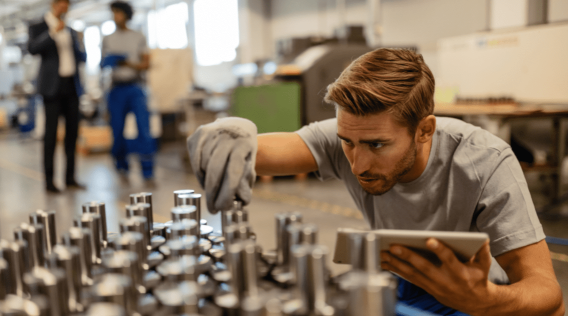소개
CNC machining has revolutionized the manufacturing industry with its precision, efficiency, and durability. Among the various materials used in CNC machining, aluminum stands out for its versatility and wide range of applications. This article will explore the benefits of CNC machining aluminum parts and how they contribute to the success of modern manufacturing processes.
Precision in Manufacturing
When it comes to precision, CNC machining aluminum parts offer unparalleled accuracy and consistency. Aluminum is known for its excellent dimensional stability, allowing manufacturers to achieve tight tolerances and intricate designs. The computer-controlled nature of CNC machining ensures that every cut, hole, and contour is executed with utmost precision, eliminating the possibility of human errors.
Additionally, CNC machines are equipped with advanced software that enables designers to create complex 3D models, which are then translated into precise instructions for the machine. This level of precision is crucial for industries such as aerospace, automotive, and electronics, where even the smallest deviation can have catastrophic consequences.
Efficiency in Production
CNC machining aluminum parts are also highly efficient in terms of production speed and cost-effectiveness. The automated nature of CNC machines significantly reduces manual labor, allowing for faster turnaround times and increased productivity. Moreover, CNC machines can operate continuously, 24/7, which maximizes output and minimizes production downtime.
Aluminum, being a lightweight material, further contributes to the efficiency of CNC machining. It requires less power to machine compared to other metals, resulting in reduced energy consumption and lower production costs. Furthermore, aluminum has excellent thermal conductivity, which facilitates faster heat dissipation during the machining process, protecting the machine and extending its lifespan.
Durability and Strength
Despite its lightweight nature, aluminum is renowned for its durability and strength. CNC machining aluminum parts can withstand extreme temperatures, making them suitable for applications in high-temperature environments. Additionally, aluminum exhibits excellent corrosion resistance, making it ideal for outdoor applications where exposure to moisture and other elements is a concern.
Aluminum alloys are commonly used in CNC machining due to their enhanced mechanical properties. By alloying aluminum with elements such as copper, magnesium, or zinc, manufacturers can achieve specific characteristics such as increased strength, hardness, or wear resistance. This versatility allows for the production of aluminum parts that can meet the requirements of various industries, from aerospace to consumer electronics.

Applications of CNC Machining Aluminum Parts
The applications of CNC machining aluminum parts are vast and diverse. In the aerospace industry, aluminum components are used in aircraft structures, engine parts, and interior fittings. The automotive industry utilizes aluminum parts for engine blocks, transmission components, and body panels to reduce weight and improve fuel efficiency. In the electronics industry, aluminum is used for heat sinks, enclosures, and connectors, ensuring efficient thermal management and electromagnetic shielding.
결론
CNC machining aluminum parts offer precision, efficiency, and durability that are essential in modern manufacturing processes. The combination of CNC technology and aluminum’s properties allows for the production of high-quality components that meet the stringent requirements of various industries. As manufacturing continues to evolve, CNC machining aluminum parts will undoubtedly remain a cornerstone of successful and innovative production methods.

 0086-750-5616188
0086-750-5616188 +86 13392089688
+86 13392089688 sales@zhongmei-tech.com
sales@zhongmei-tech.com













